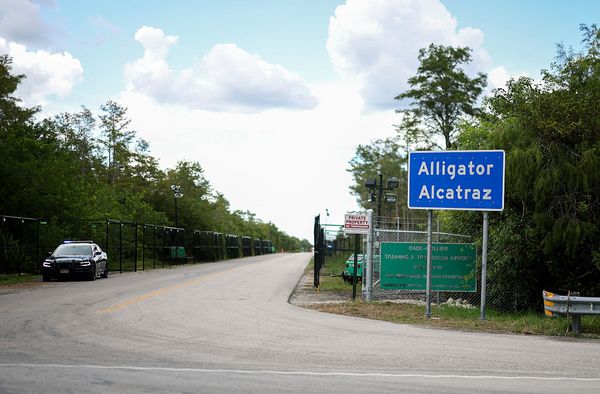Britons need to save more for retirement if they are to avoid penury in their twilight years. There is no getting away from that uncomfortable fact.
The triple lock – the mechanism that ensures the state pension rises in line with inflation, or wage increases, or by 2.5 per cent, whichever is the greatest – has done a fine job of reducing pensioner poverty, but, as the Office for Budget Responsibility has stated, it is now getting horribly expensive. The economy is simply growing too slowly, and the population ageing too quickly, to make it sustainable.
There’s an easy way to wriggle out of this bind: protect pensions by linking their value to inflation from here on out – or to earnings, if you like. You could call it the single lock. And then take steps to encourage pension saving.
There – problem solved, at least in broad terms. All it took was a bit of honesty and the willingness to speak uncomfortable truths. Who knew?
Except that’s not what the government will do. Because, despite all its macho talk about taking “tough decisions”, it’s running scared of the voters and the opposition, which is what happens when you make a mess of things and go into government without a plan.
Instead, we have the revival of – in the words of the Department for Work and Pensions – the “landmark Pensions Commission”, with supportive quotes from 11 (count ’em) organisations, including business groups, unions and charities. Talk about overkill. The statutory review of the state pension age (currently 66) is also being brought forward from 2029.
The latter will probably end up recommending that the retirement age be put up to 70 – there won’t be any supportive quotes when that’s announced – in the hope that enough of us pop our clogs before we ever get the chance to benefit from the triple lock. The latter is a cow so sacred that the mere mention of changing it to make it less ruinously expensive is enough to cast the offending minister into the deepest pit of political hell.
If the state pension were to rise in line with inflation (protecting its value) or earnings (linking it more closely to tax revenues from the working population), but not both – and especially not the third part of the lock (2.5 per cent if the other two are lower) – then we might be able to claim it a bit earlier. But the government doesn’t dare say that.
Anyway, we have the commission. It is charged with finding a way to increase pension saving because, while auto-enrolment into workplace plans has boosted the number of employees contributing to them to 88 per cent, 45 per cent of working-age adults aren’t saving anything at all. If we all saved a bit more, then perhaps we could retire before we’re knocking on heaven’s door without having to worry too much about the arrival of the state pension.
Why the discrepancy between those two numbers? Self-employed people and the growth of the gig economy. Surprise: pensions are not the first concern of young people grappling with sky-high housing costs while in insecure employment. Perhaps it’s time to bite the bullet and focus on people who can afford to save a little bit more? Just a thought.
One thing that might help: simplification. The private pensions market is still a lot more complicated than it ought to be. We’re still a long way from the US, with its 401(k) schemes that everyone moons over. Make pensions easier, and people might save more rather than retreating in confusion when they start thinking about the issue in their forties because it’s all so damnably complicated. Just a thought.
Will Baroness Jeannie Drake (a member of the first commission), Sir Ian Cheshire and Professor Nick Pearce see that? Offer some meaningful solutions that a poorly led government, which keeps tripping over its own feet, might feel able to accept?
I have my doubts. The commission’s members are worthy, well-meaning and clever. I have no doubt that their hearts are in the right place. But they are part of the class that does not live in the difficult world where the rest of us reside – with its uncomfortable truths and trade-offs, and its tough challenges, the biggest of which is just getting through another workday with one’s job intact and food on the table.
I suspect that the government would like to put the burden of improving the situation on employers, so as not to upset the voters. That would be a dangerous road to go down. They’ve already had to swallow an increase in taxes on jobs in the middle of a sickly economy, and unemployment is now rising as a result. Adding to their burden will simply put jobs at risk.
The government also faces some uncomfortable trade-offs. It just likes to ignore them in a way that the rest of us can’t. But pigeons have a habit of coming home to roost.
Perhaps the commission can work the oracle when it comes to the slow-burn pensions crisis that’s been simmering for the last 20 years – longer, if we’re honest. Someone is ultimately going to have to pay for better pensions, and that’s where we come in. There’s no real way to sugar-coat it. This will be a burden on our finances – one that might well end up feeling like another tax.
Sometimes the truth hurts. But it has to be faced – sooner or later.







